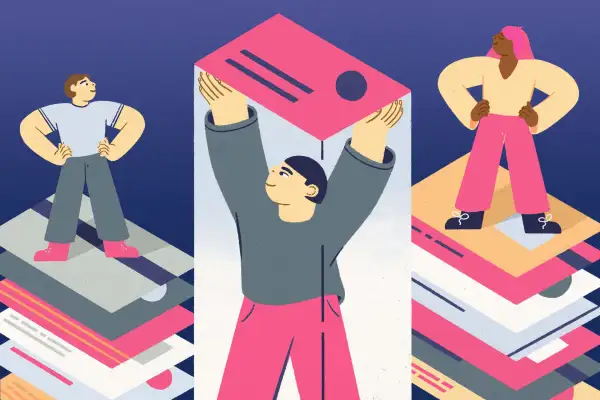How to Boost Your Credit Card Approval Odds

Ever since the COVID crisis impacted the U.S. in 2020, credit card issuers have made it more difficult to be approved for new cards. In fact, they've even reduced the credit limits of some existing cardholders.
But don't give up hope, as card issuers are still willing to approve new accounts under the right circumstances. What you need to know is that if you're applying for a new credit card, it's never been more important to take every possible step to maximize your chances of being approved.
If you're new to credit, or you have serious problems in your credit history, then now isn't the time to apply for a premium rewards card that requires excellent credit. Instead, check your credit reports and credit score, and find a suitable card for your credit profile. Thankfully, you're entitled to receive copies of your credit reports from AnnualCreditReport.com, and there are many free services that will show you your credit score. For example, Equifax offers a credit score monitoring service and Experian offers a free FICO credit score. A good rule of thumb to remember: the better your credit score, the better chances you will have of being approved.
Step 2: Pay down your existing credit balances
Opening up a new credit card account is essentially the same as asking for a loan. And as the old saying goes, banks only want to loan money to people who don't need it. When you have very little apparent debt, your application for new credit will be looked on more favorably. So, before applying for a new credit card, you should pay off all of your existing credit card balances, or at least pay off as much as possible.
About half of all American credit card users avoid interest charges by paying their statement balances in full. Still, many of them would be surprised to learn that their monthly statement balances are listed on their credit reports as debt. But if you pay off your credit card balances before your statement closing date, then your credit report will show no debt, which will help your application for new credit. Just make sure to wait until a few days after your statements close before apply for a new credit card, to give time for the new balance to be reported to the major consumer credit bureaus. Paying down your balances before your statement closes may also increase your credit score, which will improve your chances of being approved for a new card.
Step 3: Pay special attention to balances on other accounts from the same card issuer
Credit card issuers will be very hesitant to approve you for a new card when you already have a large outstanding balance on another one of their cards. For example, if you're applying for a new credit card, then it can help your application to first pay off any balances you have with other cards from that same issuer. Unlike paying off balances with other card issuers, you only have to wait until your payment is credited to your account, as the card issuer will see it immediately.
Step 4: List all available household income on your application
In 2013, the Consumer Financial Protection Bureau (CFPB) ruled that applicants for new credit who are 21 or older may list income from their spouse or partner, so long as they have a reasonable expectation of access to it. This means that you can apply for cards using your spouse or partner's income in addition to your own. Furthermore, be sure to list all available sources of income, including child support, spousal support, government benefits and investment income.
Step 5: If you're not immediately approved for a new card, follow up immediately
While some credit card applications are immediately approved, many people will see a message saying that they should expect a decision in the mail within a few weeks. However, you shouldn't wait that long. If your application isn't approved right away, contact the card issuer to discuss the application. It may surprise you to learn that many card issuers empower their representatives to make credit decisions over the phone.
In fact, the representative you speak to may even be incentivized to open new accounts, so the two of you may be on the same team, so to speak. The card issuer will want to approve your new account, so long as it can minimize its exposure to default. During the call, you can explain that you're seeking to enjoy the rewards and benefits of the new card, rather than fully utilizing a new line of credit. If you have additional accounts from the same card issuer, you can offer to transfer a portion of your credit line from an existing account to the new one, or perhaps even close an unused account. That way, the card issuer isn't increasing its risk, and is much more likely to approve the new account.
Other times, you may simply have to answer questions over the phone regarding your income and other financial information before being approved.
Step 6: If your application still isn't approved, ask why
Whenever you've had an application for new credit rejected, the law says that credit card issuers and other lenders are required to let you know why. The reasons can be that you have high balances, too many accounts, too many recent inquiries, not enough income or, of course, low credit. Sometimes, there are even more mundane reasons like listing an unrecognized address, or the inability to verify your identity due to a typo or other mistake. Thankfully, some of these problems can be addressed quickly, so it's always worth it to follow up with the card issuer to ask if there's anything that you can do to be approved.
What to Know About Boosting Your Credit Card Approval Odds and Credit Utilization
One of the quickest ways to raise your credit score and improve your chances of being approved for a new credit card account, is to reduce your credit utilization ratio. This is the amount of overall debt you have, divided by the total amount of revolving credit that you've been extended.
Most experts agree that it's best to have a debt to credit ratio of less than 30%, although a lower ratio is always better than a higher one, and there's no magic number.
There are two ways to reduce your debt to credit ratio. First, you can pay down your debt. By reducing the amount you own on your credit cards, this ratio will automatically shrink. But also, you can request a larger line of credit from your existing accounts. You'll be most likely to receive this if you already have a high credit score and a solid record of on-time payment.
How to Boost Your Credit Card Approval Odds if You Have Bad Credit
When you have bad credit, it can be a struggle to be approved for a new credit card. To start off with, you need to apply for a card that is specially designed for people with a credit problems. This can be a sub-prime card that will have higher interest rates and fees than other cards that are designed for those with better credit.
Alternatively, you can apply for a secured card. These cards work just like any other credit card, but require the payment of a refundable deposit before your account is opened. Thankfully, you can be approved for a secured card with nearly any credit history. And in most cases, you just need to make sure that you have no outstanding delinquencies, bankruptcy or foreclosure proceedings, and that you can verify your identity. These cards also tend to have lower rates and fees than other sub-prime cards.
Best Cash Back Credit Cards of 2020
It's Suddenly a Lot Harder to Find a New Credit Card. Here's How You Can Still Get Approved
